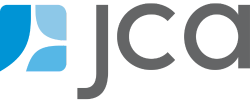7 Habits of Highly Effective Advancement Operations

Liz Murray
Director of Professional Services
We’re eight months into the COVID-19 pandemic and new business norms—shaped by rapid change and unexpected challenges—are starting to set. Now is a great time to hit pause and re-evaluate your habits. While you cannot change the fundraising landscape, you CAN look inward at your operations. By adopting these seven habits of highly effective advancement operations, you can strive to make every action count and drive results by leveraging people, processes, and technology to optimize your organization’s fundraising activities.
1. BEGIN WITH THE BUSINESS IN MIND
Good solutions start with the business requirements. In order to design innovative and effective solutions, you must first know the business and the key players. Highly effective teams work to understand the organizational structure so that they can identify and consult with key decision-makers, and are perceptive at navigating the culture of both individuals and the organization. Effective teams act as a consultant to their internal customers, partnering to co-design balanced solutions that satisfy everyone’s needs. Building positive and open working relationships with your internal customers will greatly contribute to your advancement operations team’s success.
2. STAY CURRENT
As the business landscape changes with technology, it is increasingly important to stay up-to-date on current and emerging trends, in order to identify new opportunities for system improvements. While the expectation is not to stay ahead of the curve, highly effective teams continually monitor organizational performance and the external environment to best align its services with its stakeholders, identify potential disrupters, and to remain competitive with other charities. With new technology comes new expertise requirements. Consider creating a skills matrix to align professional development and hiring to address any gaps.
3. THINK ALIGNMENT
Highly effective teams are very aware of the big picture and proactively work to align their information systems with the organization’s mission. Your organization’s people, processes, and technology should be complementary and designed so that the sum of the parts together satisfy your organization’s business needs. It is important to build feedback loops within your information technology framework to monitor results and identify areas for improvement. As new needs arise, get involved and help business owners to integrate new systems into the larger network of systems (and avoid disparate, single-use platforms!). This may ultimately involve acting as a mediator in managing conflicting goals across the organization and balancing short- and long-term objectives.
4. DOCUMENT EVERYTHING
Highly effective teams understand that they need to write it down in order to make policies, processes, and procedures both explicit and replicable. Documentation will help you preserve institutional knowledge and communicate standardized practices across the organization.
To start, provide or work with business owners to develop documentation designed for day-to-day operational use. When designing new solutions, leverage documentation to drive decision-making and to streamline development efforts. Ideally, the same documentation can be quickly adapted into a how-to procedural manual for end users. Within your advancement operations team, define and document your technology policies, principles, and frameworks to help streamline the development process and to standardize and align your deliverables.
5. BE PREPARED
If 2020 has taught us anything, it’s the need to be prepared. Pandemics, natural disasters, data breaches, all can greatly disrupt your business and can potentially pose legal issues for your organization. Creating a business continuity plan can help you outline the steps required to allow your essential business activities to continue during an emergency. The first step is to analyze the business and determine your essential business processes and activities (for example, gift processing). Consider how these processes could be disrupted and what you can do to mitigate the impact. The good news is that many of the pressing requirements forced by a bad situation, such as the need to create paper-free electronic processes or the need for a web-based CRM, will actually make your advancement operations more efficient and competitive in the long run.
6. STEWARD YOUR DATA
Whether you employ a decentralized or centralized data entry model, data governance is for everyone. Highly effective teams know that data management is key to their organization’s current and future success. Establishing standard processes and policies for data capture, maintenance, and disposition allows you to leverage data for discovery and decision-making and ensures institutional knowledge is being retained over the years. Disposing of data that is no longer needed limits your liability and can improve system performance. Expectations for data entry must be clear, as well as the assignment of responsibility for data audits. Consider creating a cross-team data governance group to share the workload and to help collaboratively develop and communicate coding schemas.
7. PROVIDE VISION
Highly effective teams not only provide exceptional services, they also provide vision and leadership. Modernizing information systems is essential to survival and requires a strong champion who understands the technical and the business needs of the organization. Communication is key—consider how best to appeal to your organization’s leadership. Work towards developing a forward-looking information systems roadmap, in conjunction with leadership, to help identify and communicate short- and long-term priorities across the organization. This roadmap should guide your team’s daily work allowing you to focus on what matters most, and provide a tool for managing conflicting demands.
With these seven habits in mind, you can identify specific areas of your operations and apply these principles to improve performance and strengthen your advancement operations, so you are prepared for whatever tomorrow brings.
GET IN TOUCH
If you have any questions about how to evaluate your people, processes, or technology, contact us. We are here to help.
